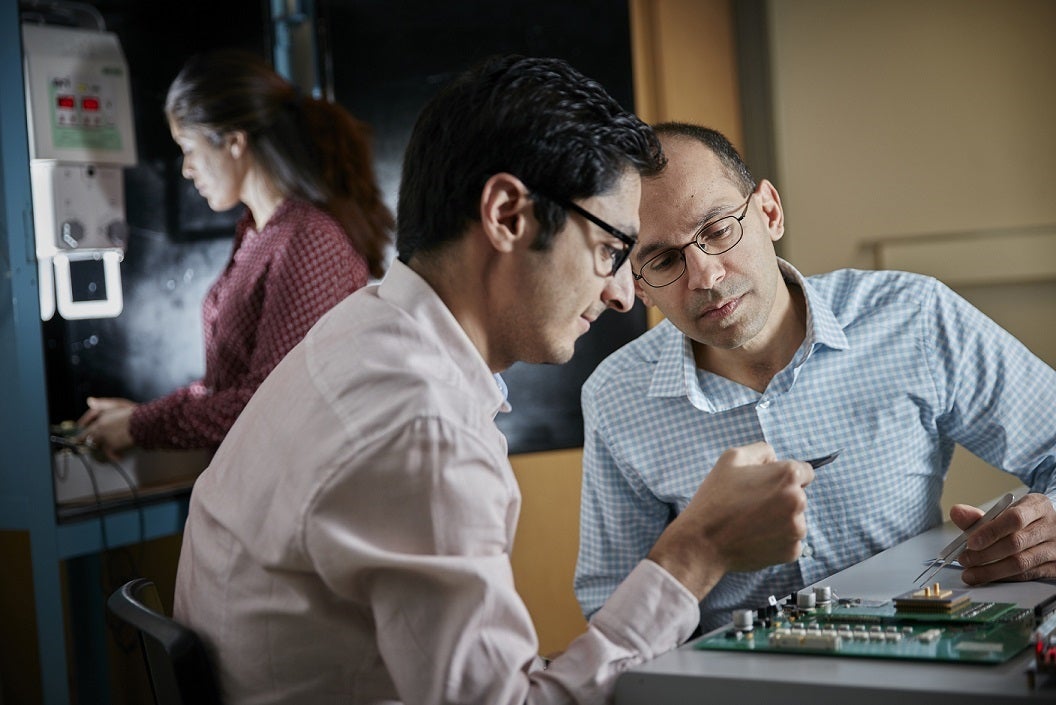A startup company with deep roots at Waterloo Engineering is receiving $1 million in government funding to further develop and test an innovative digital X-ray imager for use in developing countries.
KA Imaging, a venture involving professor Karim Karim and engineering graduate Amol Karnick, was one of six projects named for financial support in an announcement by Grand Challenges Canada.

Electrical and computer engineering professor Karim Karim, right, works with doctoral student Sina Ghanbarzadeh.
Funded by the federal government, the program also includes matching money from industry partners and is aimed at innovations with early promise of improving global health.
Karim is a Waterloo professor of electrical and computer engineering who won a national award for his doctoral work and has attracted more than $11 million in research funding since 2003.
Karnick earned an undergraduate engineering degree at Waterloo before going on to further studies and working for more than 20 years in the medical device industry.
Based in Waterloo, KA Imaging will use the federal investment and matching funds from three partners – Christie Medical Holdings, Delft Imaging Systems and Ontario Centres of Excellence – to develop its high-resolution X-ray prototype.
Novel imaging device is cheaper, safer
Significantly cheaper and using much lower X-ray doses while still maintaining the accuracy of conventional imagers, the unit is expected to have diagnosed 960 people with tuberculosis in Zambia by September.
The digital system costs less than 50 cents per test, versus almost $9 for a standard X-ray, potentially offering affordable, rapid diagnosis to the estimated two-thirds to three-quarters of the world’s population with either inadequate or no access to medical imaging.
Other promising innovations receiving scaling support after initial seed funding from Grand Challenges Canada include a sterilized cover to allow the use of low-cost, hardware-store drills for bone surgery and a smartphone application for HIV self-tests.